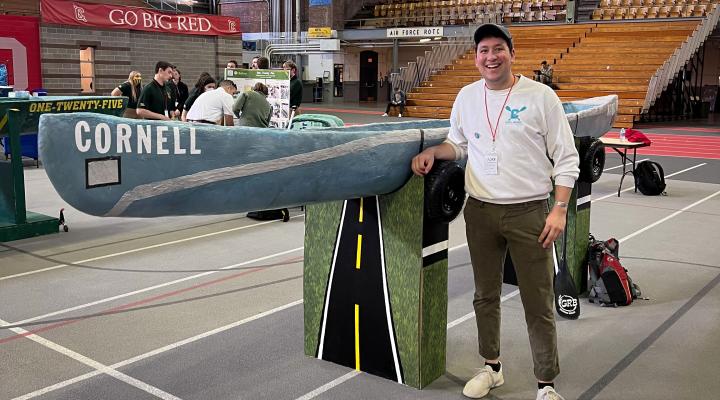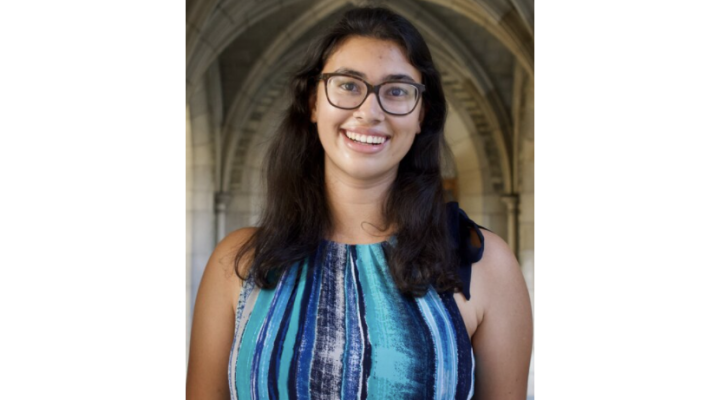Chalermpat Pariya-Ekkasut loved to build sandcastles when he was a kid. Growing up in Ratchaburi, Thailand, (two hours from Bangkok), Pariya-Ekkasut was never far from the ocean. As a Ph.D. student working with Professor Tom O’Rourke in the geotechnical engineering group at Cornell’s School of Civil and Environmental Engineering, Pariya-Ekkasut still gets to play in the sand and the soil, but these days his “play” takes place at the Geotechnical Lifelines Large-Scale Testing Facility in Thurston Hall.
“My father was a Royal Thai Army officer and worked as a construction engineer,” says Pariya-Ekkasut. “As a kid, I saw him in his uniform all the time. He would take me to construction sites and let me explore. Civil engineering got into my heart and my brain without me even knowing it.”
At the age of fifteen Pariya-Ekkasut decided to join the Thai Army like his father and enrolled in a military prep school in Thailand. He took the standard academic classes all high school students take, but he also had military and physical trainings. “I knew I wanted to help people and by being an engineering in the army I could be of service to my country,” says Pariya-Ekkasut, (who also goes by “Pat”).
Pariya-Ekkasut won a scholarship from the Thai Army to pursue his undergraduate degree at a military college in the United States. First, he enrolled in the Wyoming Seminary School in Kingston, Pennsylvania for a year and his English improved greatly. He then applied to the United States Military Academy at West Point as part of a 4-year exchange undergraduate program with the Thai Army.
Pariya-Ekkasut went on to earn his undergraduate degree in civil engineering at West Point. When he graduated, he went back to Thailand and approached his commanding officer with the idea of returning to the United States for graduate studies. At first, the commanding officer said he thought that would be a good idea—after two or three years of military service.
Pariya-Ekkasut had already been accepted into an M.S. program at Cornell, and he was eager to start. Over the course of a month or two he convinced his commanders that he should go to Ithaca and start on his degree right away. That was five years ago, and Pariya-Ekkasut has not once regretted his decision.
Once he began working with Professor O’Rourke, Pariya-Ekkasut quickly realized an M.S. would not be enough. “I liked doing the large-scale hands-on research so much,” says Pariya-Ekkasut, “that I switched into a Ph.D. program. The facilities here are special. There are not many places in the world that can match the kind of testing we do here.”
The kind of work Pariya-Ekkasut does at Cornell has repercussions around the world. “Earthquakes and other ground deformations damage pipes,” says Pariya-Ekkasut. “Cities want pipeline systems that can withstand large ground deformations. Pipeline manufacturers around the world bring their pipes to us, and we evaluate their performance. We also try to understand what needs to be done to make improvements to both the materials used in the pipes and flexibility at joints that connect pipeline sections.”
Pariya-Ekkasut expects to graduate with his Ph.D. in May of 2018. He will return to Thailand and bring what he has learned with him to his position as a Second Lieutenant in the Royal Thai Army. “Of course I have learned a lot about protecting essential pipeline systems,” says Pariya-Ekkasut. “But I have also learned about the thinking process and how to approach any problem from an engineering perspective. It is a very useful way to think about things.”




